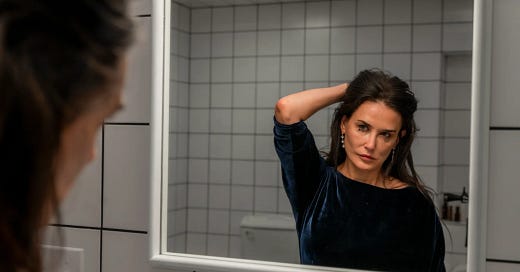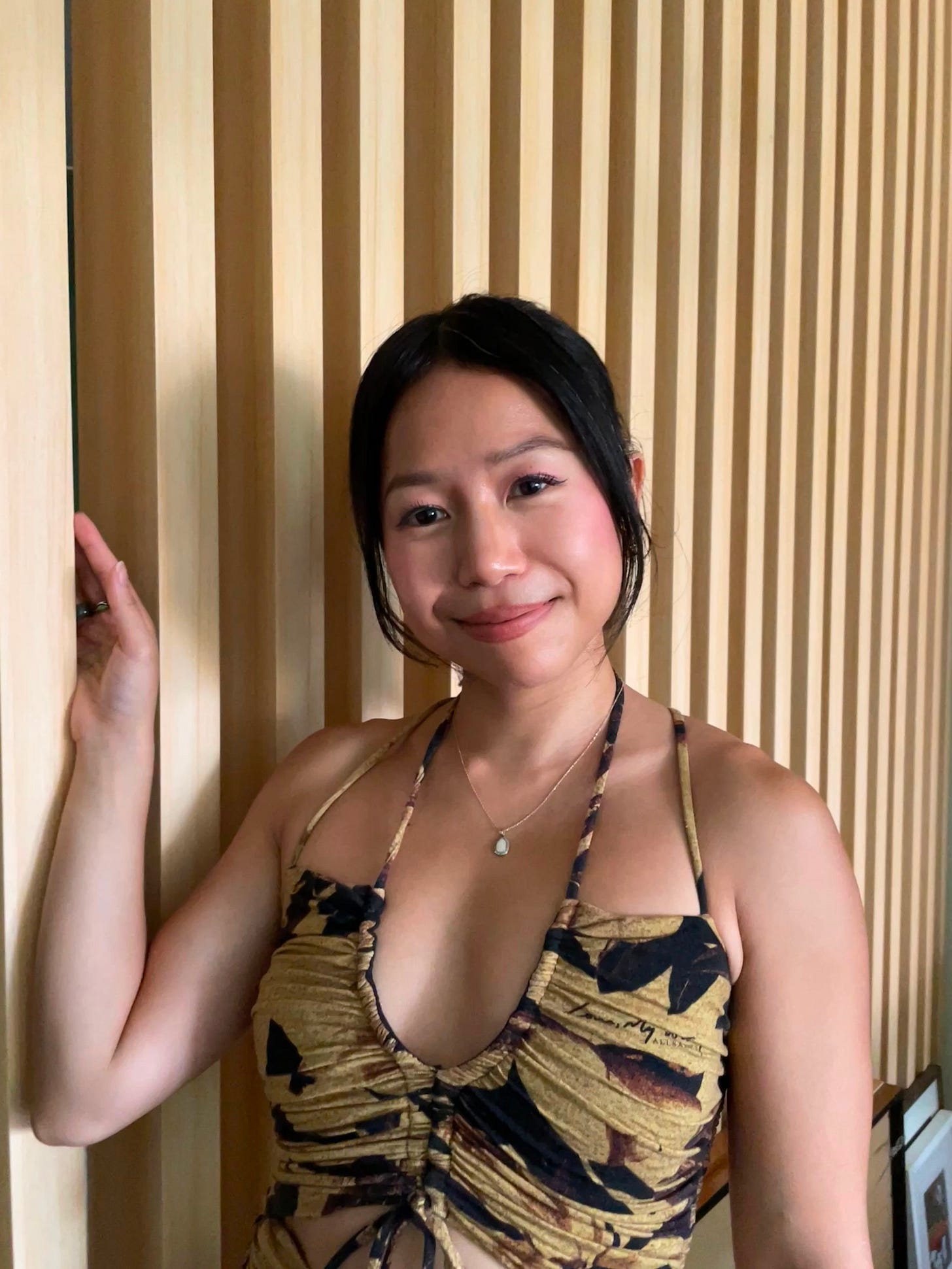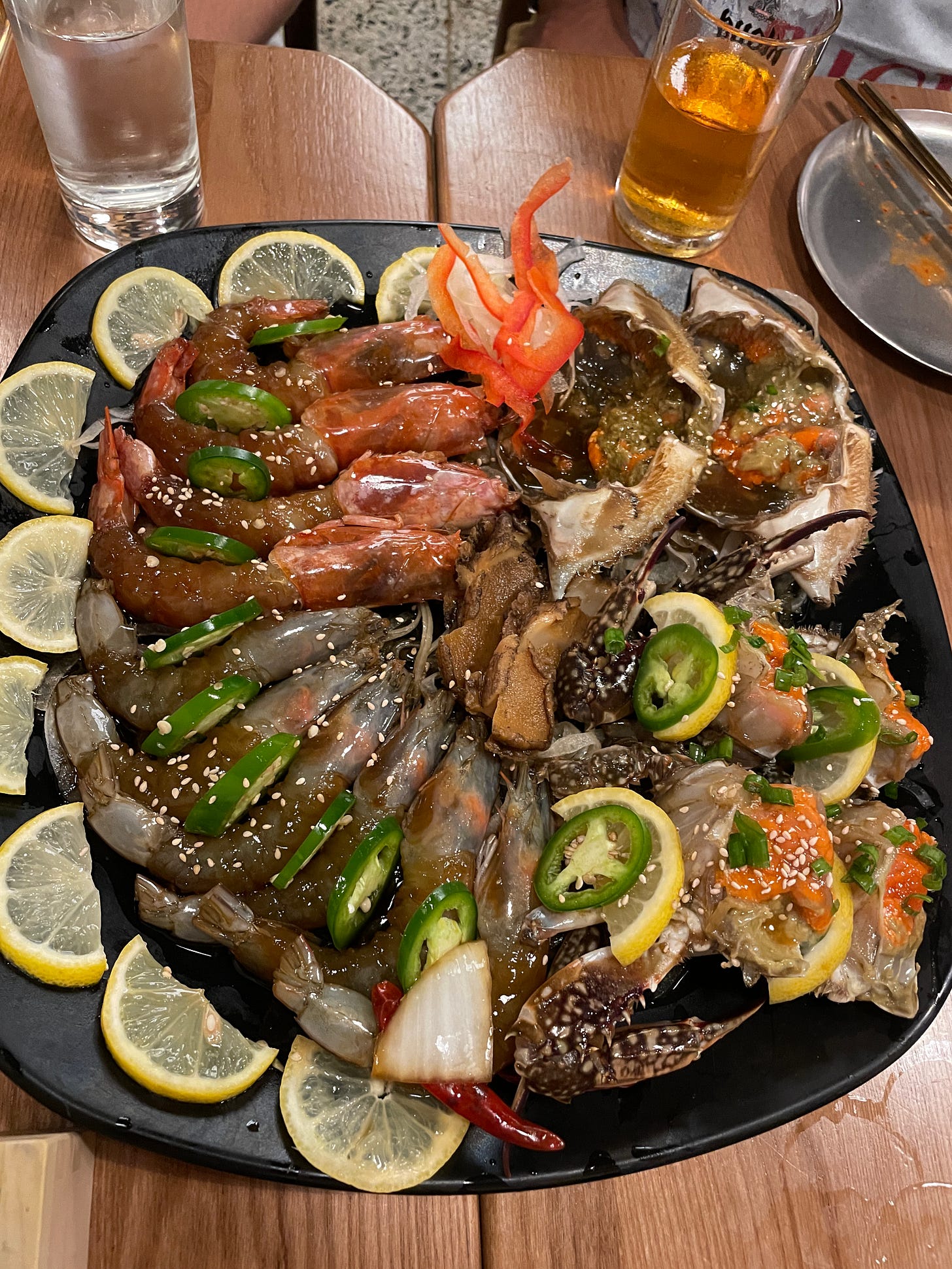If you’re a regular reader, you might be expecting another exploration of non-monogamy and alternative relationship formats. I want to take a little break from that topic to practice writing about something else. I’ve been reflecting on other types of complicated human emotions, especially those that challenge our capacity for empathy.
Over the last few years while navigating different spaces--professional, romantic, or social--I’ve realized that it’s often the people who come across as mean, aloof, or condescending who are carrying around the most insecurity and pain. I feel a tenderness toward them because they’re just projecting their feelings but also resentful that their pain manifests as meanness.
This post is about one such person, who is really inspired by several different complicated figures I’ve met over the years. I’m writing this to process and think about how far our empathy for other people should stretch and where we should draw our limits. Let me know what you think! Have you met people like this?
There is a specific type of exhaustion I feel managing the emotions of someone who simultaneously seeks my approval and resents my existence. It’s been a few years since I met Estefania, who founded the Latina Artist's Loft, and I still haven’t figured out how to leave any interaction with her without feeling emotionally drained.
I’m a community organizer, and most of what I do involves securing funding and building partnerships with various arts organizations. One thing I need to work on in both my professional and personal life is my lack of poker face. People who know me always tease that if I dislike someone, everyone will know instantly. It’s made my work with Estefania pretty difficult, because everything she says makes me want to roll my eyes. It takes a very conscious effort for me to maintain a neutral expression around her.
The first time I met her, she latched on to me right away. I think it’s because I represented access to institutions, to funding, and the type of legitimacy she craved. The artist collective she built was undoubtedly impressive. She was working to ensure Latina artists were not overlooked in a space dominated by white men. It’s important work and she’s been celebrated for it. It wasn’t enough for Estefania though. She needed everyone to believe she accomplished everything.
She was always name-dropping. “Oh, I was on the phone with Noah,” referring to Noah Horowitz of Art Basel, and formerly of Sotheby’s. Nobody ever asked, but she constantly felt the need to demonstrate her “friendship” with power players in the space. I knew many of them personally, as it was part of my job. I also knew that if I mentioned Estefania Ortiz to any of them, at best I’d get a vague recognition, or at worst a story about her latest aggressive email campaign. I also knew that calling her out would serve no purpose except to embarrass her and potentially damage our professional relationship. So whenever I talked with her I had to put on a show of interest, even as I watched other people in the room give each other an “ugh it’s her again” look.
I’m relatively extroverted, but my social battery dies from this constant calibration around her. I calculate my every response and reaction, considering how it’ll land with her and her hypersensitivity. Estefania was always analyzing and ready to perceive something I did or said as a slight. With her, I find myself performing an immense amount of emotional labor that my interactions with other people I work with never seem to require.
One breaking point came when I had a routine meeting with her about an upcoming fair. My assistant had mentioned to her she just attended a panel discussion at the local arts center, and Estefania immediately launched into her latest self-brag: “Yah, I’m actually keynoting at Harvard next month. I’ve been guest lecturing at all the Ivies this year about democratizing the arts.” As she went on about this, I knew she was lying and I got bored. I had to work so hard not to change the subject, but she continued with escalating claims. Apparently Yale’s president also personally called her to thank her for “transforming the discourse” and Colombia was creating a fellowship in her honor. She spoke with so much certainty, probably thinking that no one in the room would fact-check her claims. She actually did have some published work in noteworthy publications but Idk if everything she claimed was true.
My face was definitely betraying me at this point-- I’m cursed with an honest face! I could tell Estefania caught it. She started telling me about how a bunch of people in the arts community were talking smack about her, and she was looking at me as though I knew exactly what she meant. “You’ve probably heard all the rumors everyone’s saying about me.” No girl, I don’t think anyone’s talking about you. Truthfully most people in our field were too busy working on their projects to be talking about Estefania Ortiz. Her assuming everyone was talking about her was grandiose but also deeply sad.
This was the day she made me cry, the first time in six years that I cried about work. It wasn’t just one thing. It was the way she talked down to me as though I worked for her, not as a partner, and the way she manipulated me into buying her meals with a kind of entitled assumption that I should be grateful for the honor of treating her. She would explain my own job to me, her tone dripping with condescension, all while positioning herself as some kind of professional savior in my career. I really think I could’ve accomplished everything I had without her, and certainly with way less emotional drainage. But here she was again, both trying to establish dominance while also seeking out my approval. She needed me to see her as both mentor and peer, superior and friend. In her I recognized a behavior I feared I had, which is a desperate need to be viewed as important. Her approach was just so aggressive it broke something in me.
I hated how she would immediately pivot afterward, asking me to hang out with her and read tarot cards or work on puzzles. As though she hadn’t just spent an hour systematically breaking down my professional confidence, and now she wanted to get a drink. I could sense that she had no friends, and wanted me to be a friend. I resented how she’d follow giving me cutting remarks with an invitation to get drinks. I was suspicious they were all power-plays disguised as efforts for coalition building.
I do understand where it comes from. We’re both women of color, figuring out how to make ourselves bigger in rooms designed to overlook us. Like her, I’ve had to prove myself constantly-- maintain perfect vocabulary and presentation lest I be seen as less than. I recognize in Estefania many of the survival strategies that many of us develop-- name dropping or exaggerating as self-defense and aggressive self-promotion as a necessary evil.
While I understand her motivations, it doesn’t at all make it easier to be on the receiving end of her brand of professional performance. Whenever we’re parting ways and she asks if I want to hang out, I see her genuine longing for connection and yearning for peer validation and perhaps friendship. It all peeks out from her carefully constructed facade of self-importance. Sometimes I’ll catch her looking at me with what I think is a mixture of envy and admiration.
Ultimately though, the professional benefits of our collaboration aren’t really worth the emotional cost of our relationship, so I’m not willing to spend any unnecessary amount of time with her. Each time I see her name pop up on my phone, I feel a tightness in my chest, anticipating her usual game of power plus vulnerability. I’m so tired!!
I do think we’re both playing the same game though, just with different strategies. We’re both navigating spaces that aren’t so welcoming to us, trying to claim some bit of power in a system designed to deny it to us. She does it through embellishing her largess and through aggression, while I do it through careful and measured strategic alliance-building. We’re both trying to succeed and survive in our own ways.
When I last saw her, she was telling a group of young BIPOC artists about her close friendship with Jenna Lyons, who I happen to know has never heard of her. I did my best to maintain a neutral expression, and wondered if these young artists could see through her performance or if they were learning how to make themselves bigger in a world designed to make them feel smaller.
I’m writing this [completely fictionalized] post because she made me think about pleasure and authenticity in professional spaces. I’ve written a lot about the many different paths to a pleasurable life that remain ethical and grounded in care for community. To watch Estefania fake her way through every interaction is to watch someone sacrificing the pleasure of authentic connection in pursuit of power. Perceived power. She could just enjoy the genuine respect she’s earned through her work with the artist collective, but with every exaggeration and every name-drop, she’s just denying herself the pleasure of being known. I even feel like her attempts at friendship are just extensions of her networking strategy rather than a real reach for joy. Or is that too cynical? I’m in a cynical period right now.
I hate that I spent this whole post venting about another woman, but I really do hold some tenderness toward her. I want to understand where her difficulties come from. We all have professional scars, and we’re buckling under systemic pressures, and as a result she’s felt this constant need to prove herself. I think for now I’m going to let her spin her tales of influence to someone else’s carefully maintained neutral face.
Q: I’m curious about your approach to writing about real people from your life— do you get their permission first, and how do you decide the line between honoring their privacy and telling authentic stories?
A: I chose this question for this post because it follows what feels like a bit of an expose about someone. This is a hyper fictionalized piece that combines multiple experiences with different people, with most details altered. I like drawing from real experiences because that’s where the juicy, complicated stuff lives, but I’m more interested in exploring patterns and dynamics than documenting exact events. In the case with this post, the person who made me cry at work and then invited me out to drinks isn’t one specific person— they’re every insecure power player I’ve met, filtered through my pov. I’m not telling the story of a specific person but a story about what it feels like to be in these spaces, in relationship with these people, and these moments where we’re trying our best to be seen. But sometimes someone trying their best turns out to be awful. Sometimes it’s tender. I think it’s worth writing about. A dude I wrote about actually recognized himself in a story I wrote…but I didn’t say anything bad and it’s fine!
I liked this piece about Maggie Smith’s 88 year old face gracing the photos of Loewe’s latest campaign. It’s refreshing to see her unfiltered and aged face modeling for them.
Also on the topic of aging and beauty, I just watched The Substance. It really captures the raw female rage many of us feel about aging in a society that tries to erase us as we get older. I’m still probably buying a red light therapy mask next month tho.
I’ve been following Ta-Nehisi Coates’s press tour for his new book, The Message, where he writes about systemic racism and power dynamics in Palestine, the American South, and Senegal. Ta- Nehisi Coates is a great thinker and this conversation with him and Ezra Klein is one of the better ones I’ve listened to about what’s happening in the West Bank.
This is the Gunsan Premium Platter from Rice Thief in LIC, which features Gunsan crab, abalone, argentine red shrimp, white shrimp. Lou had a scary allergic reaction from this meal so we’re never bringing him back here again but I’m still thinking about the argentine shrimp so I will plan a separate return.
Your feedback is genuinely so valuable to me so please if this post stirred up any kind of thoughts please reach out. Also consider giving this post a ‘like’ to help others find my work. Thank you!











Loved this piece. Very relatable. Compassion is the best (and only!) strategy for dealing with toxic people.